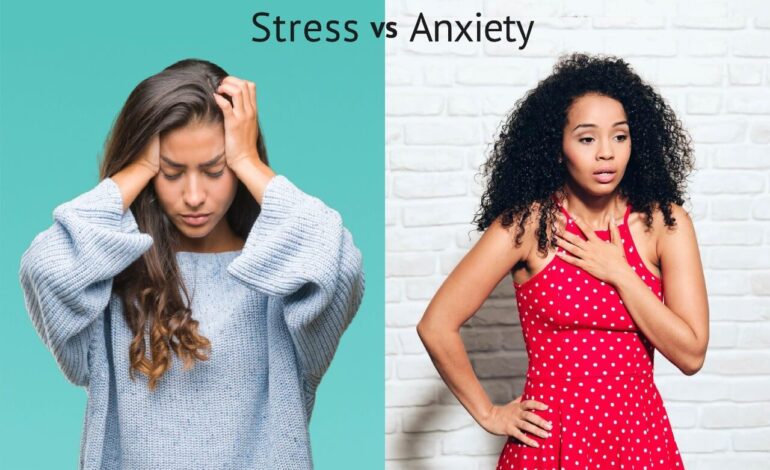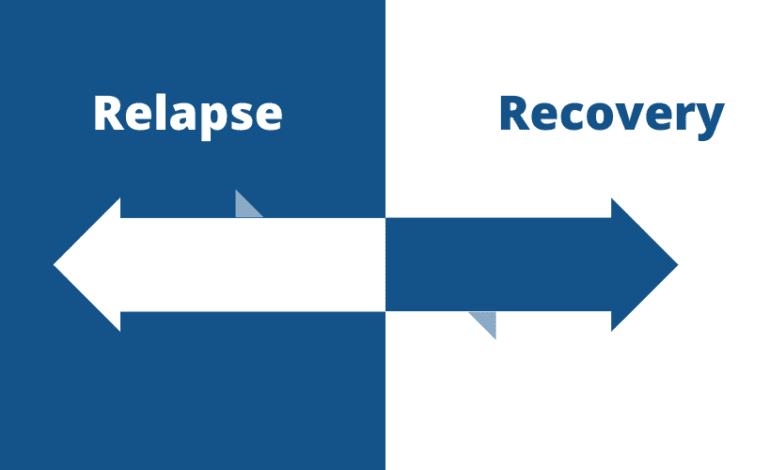Difference Between Stress & Anxiety
Individuals under stress will eventually start to feel mental and physical symptoms, such as irritability, anger, fatigue, muscle pain, digestive troubles, and difficulty sleeping. Stress can often lead to anxiety, and these terms are often used interchangeably; however, there is a significant difference between stress and anxiety.
- Stress is a response to an external factor, such as an impending deadline at work or an argument with a loved one, and subsides once the situation has been resolved.
- Anxiety is an individual’s specific reaction to stress; its origin is internal.
Anxiety is often confused for stress; however, anxiety is a mental health disorder defined by persistent, excessive worry that does not dissipate even if the underlying stressor is removed. Stress is the body’s reaction to a threat, whereas anxiety is the body’s reaction to the stress. In other words, chronic stress can turn into anxiety over time, even when the underlying stressor is eliminated.
As a result, it is important to recognize stress and adopt healthy coping skills to manage the underlying stressor to prevent an anxiety disorder.
Symptoms of stress
- Inability to focus
- Muscle tension
- Headaches
- Fatigue
- Lack of energy
- Feeling overwhelmed
- Having difficulty relaxing
Having feelings of anxiety regularly is not a standard way to live. The following are warning signs or red flags consistent with an anxiety disorder:
- You always feel tense
- You have problems concentrating
- You are late for deadlines, meetings, and appointments because you are “stuck in your head”
- You have trouble falling asleep or staying asleep
- You feel stressed and uneasy in social situations
- You experience sweating, racing heart, and trembling on regular occasions
- You cannot control your thoughts
- You feel nervous about things that you cannot control
- Unable to eat because of feelings of anxiety
- You cry or obsess over little things in life
- You run away from your problems
- You are terrified of trying new things
- You prefer to stay home rather than to leave the house
- You no longer experience pleasure with the things that you enjoy most
- You feel out of control but want to always be in control
- You are experiencing fluctuations in your weight, chest pain, abdominal pain, and/or shortness of breath
Types of stress
There are multiple types of stress: acute stress, chronic stress, and episodic acute stress, which are defined by the following:
- Acute stress: Very short-term type of stress that is either positive or more distressing; this is the type of stress we most often encounter daily. Examples include sitting in traffic, neighbor drama, or running late for a meeting.
- Chronic stress: A long-term stress that seems never-ending and inescapable. Examples include pressure from a toxic relationship, a demanding job, or past traumatic experiences.
- Episodic acute stress: Acute stress seems to run rampant and be a way of life, creating a life of ongoing distress. Basically when acute episodes of stress linger on for weeks or months.
Effects of stress
Stress can be carried out in physical forms resulting in headaches, muscle aches, and gastrointestinal symptoms. Physical exhaustion is also closely linked to mental fatigue. When many individuals become burned out at work or in their personal lives, they become more susceptible to becoming physically exhausted and sick.
Our brain is like a muscle because it requires energy in the form of food and rests in the form of sleep. When we over-exercise our bodies, our muscles become sore, we are at risk for injuries such as shin splints and torn ligaments, and we feel fatigued. Our brain, just like a muscle, can be overworked when we are not taking care of our bodies properly by not eating well or obtaining adequate sleep.
When we are experiencing emotional turmoil and our stress levels begin to rise, either at work or in our personal lives, our cortisol levels are sky-high, which puts our bodies under stress. High cortisol levels enable us to work under pressure for a short amount of time, but our bodies become depleted of energy, and our immune systems become weakened. Our mind is equally important as our physical body. We need to take care of ourselves when we are under physical stress and emotional stress. Our bodies and minds will eventually become injured when either one is overworked or stressed.
How stress can affect the body
Health problems can occur if the stress response goes on for too long or if the stress turns into an anxiety disorder. With chronic stress or anxiety disorders, the body can eventually become weak, leading to problems in the immune system, digestion, sleep cycles, and reproductive functions. Individuals under chronic mental or emotional stress are more likely to have high blood pressure, heart disease, obesity, diabetes, stroke, gastritis, reflux, skin and hair problems, sexual dysfunction, and mental health disorders such as anxiety and depression.
Managing stress
Stress is a part of life. What matters most is how you handle it. The best thing you can do to prevent stress overload and the health consequences of it is to know your stress symptoms and learn how to prevent and manage them in a healthy way. The following are healthy ways to manage stress:
- Prioritize what must get done and what can wait
- Set realistic goals
- Exercise daily
- Eat a healthy balanced diet
- Sleep 8-10 hours a night
- Form healthy, positive relationships
- Engage in an activity that makes you happy
- Stay connected with people
- Learn your stress triggers
- Avoid negative people and situations
- Get comfortable spending time alone to help you “reset”




